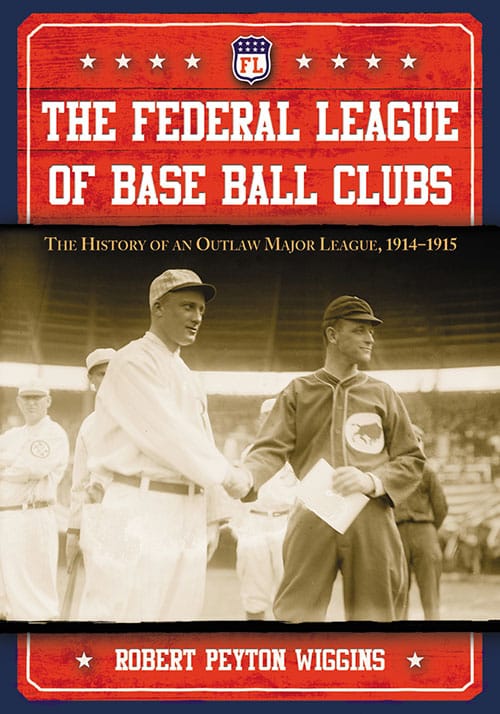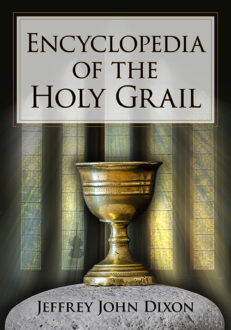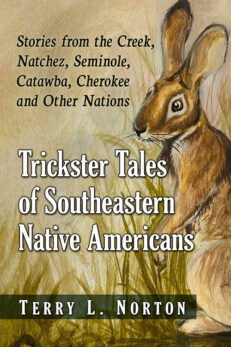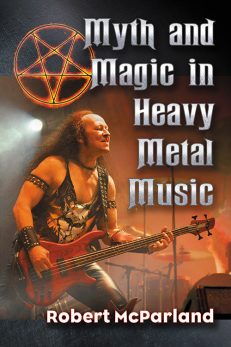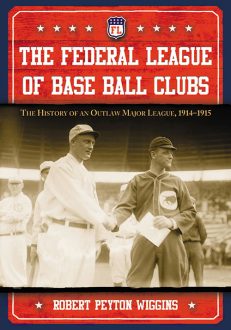The Federal League of Base Ball Clubs
The History of an Outlaw Major League, 1914–1915
$39.95
In stock
About the Book
The last independent major league ended its brief run in 1915, after only two seasons at the national pastime’s top level. But no competitor to establishment baseball ever exerted so much influence on its rival, with some of the most recognizable elements of the game today—including the commissioner system, competition for free agents, baseball’s antitrust exemption, and even the beloved Wrigley Field—traceable to the so-called outlaw organization known as the Federal League of Base Ball Clubs.
This comprehensive history covers the league from its formation in 1913 through its buyout, dissolution, and legal battles with the National and American leagues. The day-to-day operation of the franchises, the pennant races and outstanding players, the two-year competitive battle for fans and players, and the short- and long-term impact on the game are covered in detail.
About the Author(s)
Bibliographic Details
Robert Peyton Wiggins
Format: softcover (7 x 10)
Pages: 368
Bibliographic Info: 31 photos, notes, bibliography, index
Copyright Date: 2012 [2009]
pISBN: 978-0-7864-6939-0
Imprint: McFarland
Table of Contents
Preface 1
Introduction 3
1. Federal League Beginnings 9
2. A Challenge to Organized Baseball 21
3. Lucky Charley 28
4. “A Fifty Per Cent Raise Looked Too Good to Turn Down” 35
5. The Baseball Players’ Fraternity 45
6. The Federal League Survives a Crisis 51
7. Ad Brennan and Tom Seaton 58
8. The World Tourists 62
9. Opening Day 66
10. “The Nerviest Proposition I Ever Saw” 72
11. Three Finger Brown 78
12. Weeghman’s “Edifice of Beauty” 84
13. The Emery Ball Specialist 93
14. The Terrapins Set the Pace 99
15. Rowdyism and Umpire Woes 105
16. Washington Park 110
17. Pittsburgh’s Rebels 117
18. “I Will Pitch for the One That Gives Me the Most Money!” 123
19. Prince Hal 128
20. Ty Cobb of the Feds 135
21. Tinker’s Invalids 142
22. Fielder Jones 147
23. The Stretch Run 152
24. A Gloomy State of Affairs 160
25. The Big Train Almost Becomes the Federal Express 168
26. The Federal League vs. Organized Baseball 173
27. Jumpers and Flip-Floppers 178
28. “An Embarrassing Situation” 186
29. Opening Day 2 193
30. Benny Kauff Goes Astray 201
31. Rebels Resurgent 207
32. The Top Whale Goes Down 214
33. Buffalo’s Got the Blues 218
34. “This Season You Are Playing for Me” 222
35. The Colonial League 228
36. Lee Magee Style 232
37. “My Resignation Was Wired to Mr. Ball This Afternoon” 240
38. “The Belgium of Baseball” 245
39. The Deacon Takes the Pulpit 249
40. The Tribune’s Amateurs 256
41. Davenport and Plank 264
42. The Pivotal Series 269
43. The Big Bluff 276
44. Peace! 284
45. The Big Auction 291
46. The Aftershock 298
47. The Browns/Terriers 305
48. The Cubs/Whales 311
49. The Outcasts 318
50. The Benny Kauff Story 322
51. Back into Good Society 329
Epilogue 336
Chapter Notes 341
Bibliography 353
Index 355
Book Reviews & Awards
- Winner, Larry Ritter Book Award—SABR
- “At last. We now have a definitive history of that infamous and somewhat esoteric subject that haunts baseball trivia contests—the Federal League…well researched”—SABR Deadball Era Committee Newsletter
- “An extensively researched and thorough examination of the origins of the Federal League.”—Society for American Baseball Research
- “Valuable…stands alone as the ‘major’ history of the Federal League”—Journal of Sport History
- “Comprehensive history”—Sports Collectors Digest
- “A stunning scholarly undertaking…[Robert Wiggins] has gotten his arms around a complex subject. He captures the story and its key participants from beginning to end…so the reader has an understanding of the players and issues of the different teams, as well as the league as a whole.”—Steve Steinberg, author (with Lyle Spatz) of 1921: The Yankees, the Giants and the Battle for Baseball Supremacy in New York (Nebraska)
- “Robert Peyton Wiggins’ The Federal League of Base Ball Clubs…is just as meaty and satisfying as the food served up at one of Charley Weeghman’s 24-hour lunchrooms.[It] should satiate any Deadballer’s hunger for knowledge about the great rival league that failed.”—Tom Simon, founder, SABR’s Deadball Era Committee.

